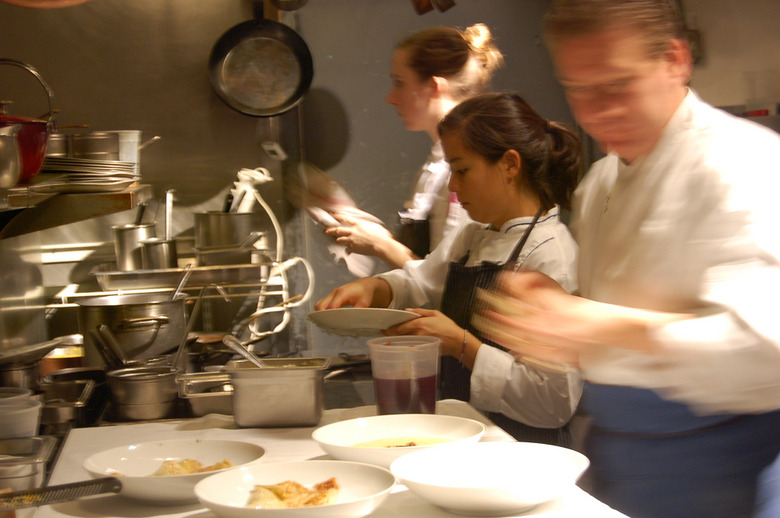Do We Have A Nationwide Shortage Of Skilled Kitchen Labor, Or A Shortage Of Fair Pay?
A shortage of skilled cooks, and the culinary beginners willing to train in order to become those skilled cooks, is plaguing the restaurant industry.
It's partly because, as food culture continues to grow, aspiring chefs refuse to put in the years of grunt work that their predecessors submitted to, and partly because the industry has yet to reach a consensus on how to pay its employees a living wage.
In the past, culinary talents who wanted to reach the top of the food chain had no choice but to start at the bottom rung — but today, culinary school graduates are often bypassing the industry to open their own food trucks or small brick-and-mortars. As such, it's become increasingly difficult to lure young cooks into professional kitchens.
"I see people my age and younger jumping around, thinking they can learn to cook fish in a month, pasta in a month, and then open their own restaurant," said Matthew Ruzga, a sous-chef at Del Posto, told the New York Times. "The tradition is that you work at least a year for each chef."
Part of that problem, restaurateurs have come to realize, is the celebrity chef, a relatively new concept that has exploded in recent years, leading many to dream of the fame and fortune that comes with a television following, all before putting in the work.
"Wanting to create a positive kitchen culture and also to have unforgiving, exacting standards is a hard balance to strike," Christopher Kostow of the Restaurant at Meadowood told the Times. "There needs to be some understanding that this is a hard job that might well suck for several years. Period."
A number of industry leaders, however, have also come to acknowledge that a big part of the problem comes down to pay.
"Until we determine a fair and equitable way to provide greater compensation for restaurant cooks, we will continue spinning our wheels as an industry," said Chris Himmel of Boston's Himmel Hospitality Group.
